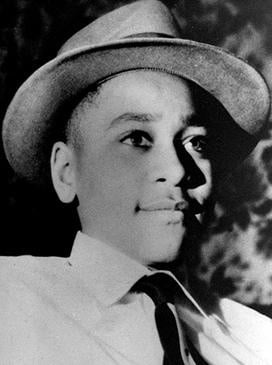Till, directed by the Nigerian-American film director Chinonye Chukwu, is based on the true story of Mamie Till-Mobley’s pursuit for justice for the murder of her 14-year-old son Emmett Till in 1955.
Danielle Deadwyler’s performance as Mamie is captivating. She brings versatility to the role as she captures Mamie’s pain, strength, conviction and deep love for her son. The performance earned Deadwyler a BAFTA nomination, among numerous awards and nominations for the film, although it notably didn’t receive any Oscar nominations.
The two men accused of Emmett’s abduction, torture and murder – Roy Bryant and J.W. Milam – were acquitted in court, even though they went on to publicly admit the following year, in 1956, that they had in fact committed the crime.
Carolyn Bryant – married to Roy and the proprietor of a small grocery store – had accused Emmett of whistling at her before grabbing her waist and making sexually suggestive remarks, but never faced any consequences for being the catalyst for his murder.
Balancing act
Chukwu’s direction is a delicate balancing act as she explores a traumatic event without traumatising the audience. A lot of care was taken not to show the brutal scenes of what happened to Emmett. The audience only hears what happens to him, which is a much more effective way to explore a brutal event.

One thing the film does focus on is Mamie’s decision to have an open casket viewing of her son’s body. The film also honours this decision. The scene where Mamie has to identify whether the body is Emmett or not is incredibly powerful and adds dimension to the trial scene as she describes how she was able to identify the body despite it being so disfigured.
The film highlights how the African American community rallied around Mamie during and after the trial: even though she lost, she was triumphant in their eyes.
We also see the contrast of a white family’s reaction to Emmett’s death in the news versus an African American family’s. To the white family, it was just another news story but to the African American family, it was another devastating tragedy.
The supporting cast does a wonderful job of taking the audience on a journey through the Till family’s everyday life. We see what normal life looked like for them before the murder and how life shifted after Emmett’s death.
Jalyn Hall, who plays Emmett, captures the essence of childhood innocence: his adorable smile shines as he appears throughout the film even after his death as a memory for his mother.
Mamie’s speech after her loss in the trial is a pivotal moment which highlights how Emmett’s murder shone a light on the problem of racism not only for the United States but for the world, not just in 1955, but right now.
There is power in naming the film Till because it allows us to remember not only Emmett but his mother and how her fight for justice helped in furthering the civil rights movement. In the end credits, we see how in 2022, 67 years after Emmett’s murder, the Antilynching Act was passed in the United States under the full name: the Emmett Till Antilynching Act.
Till is in cinemas now.
Actors:
Director:
Format: Movie
Country:
Release:





